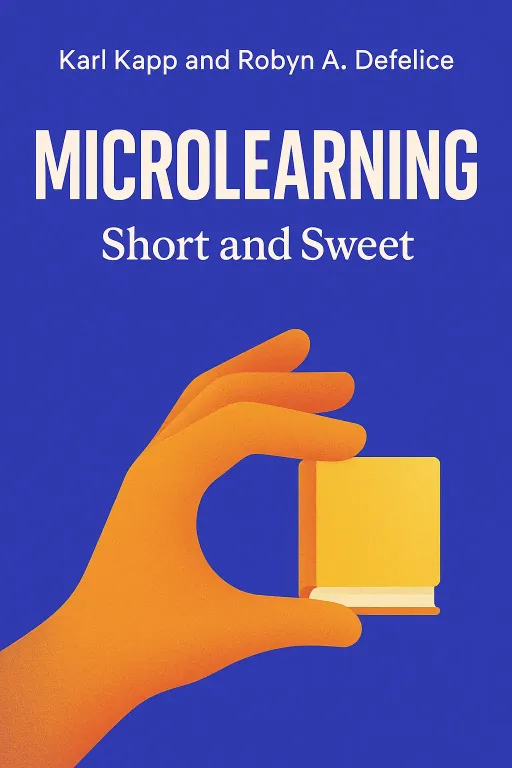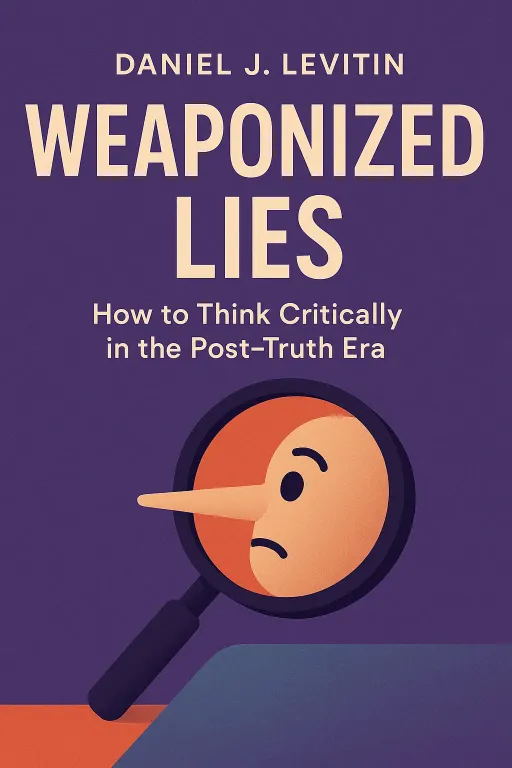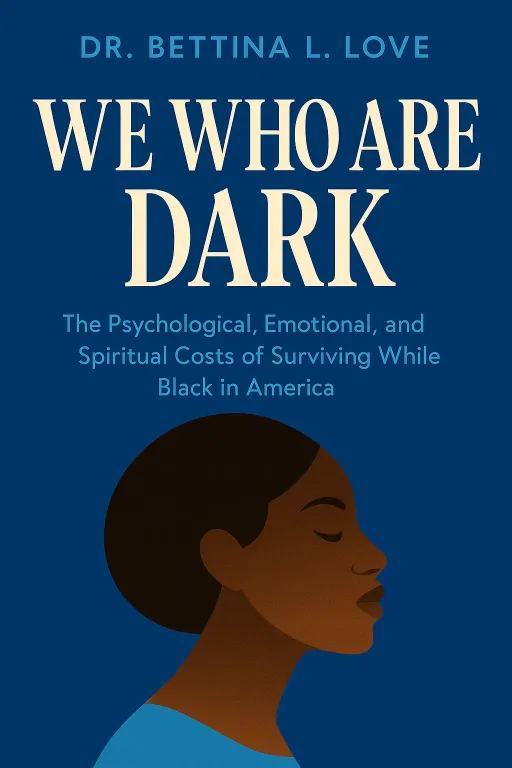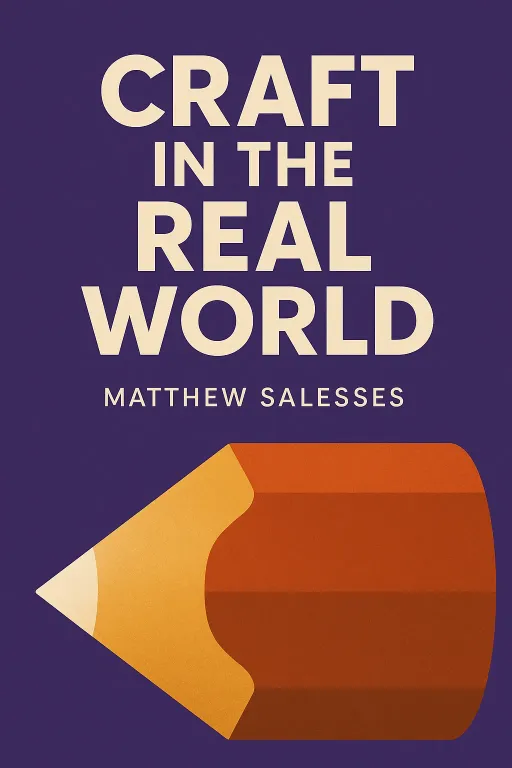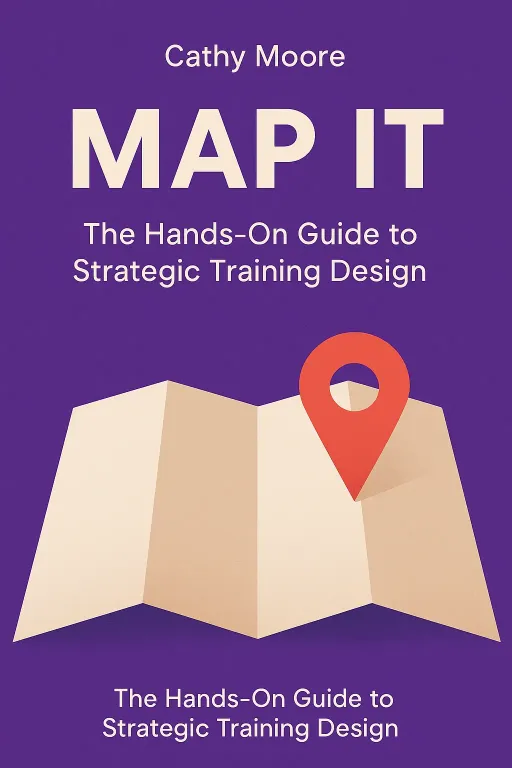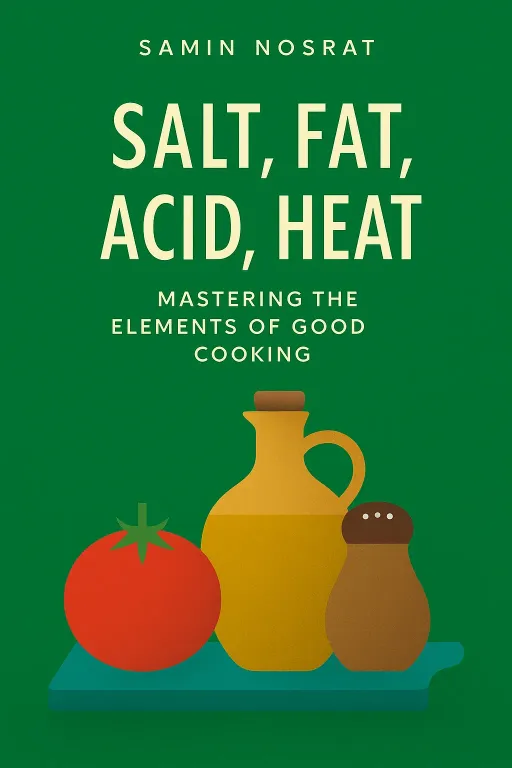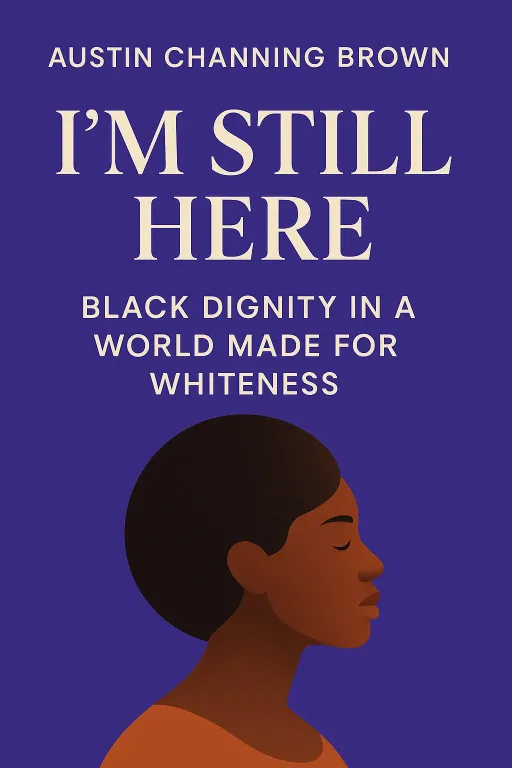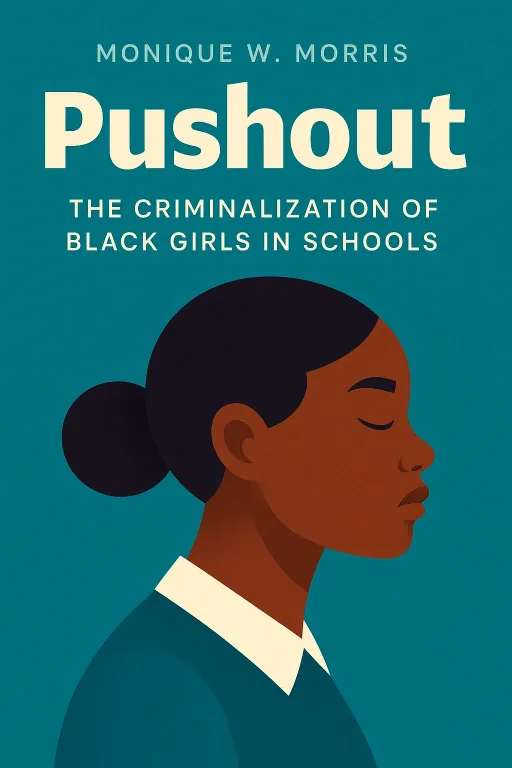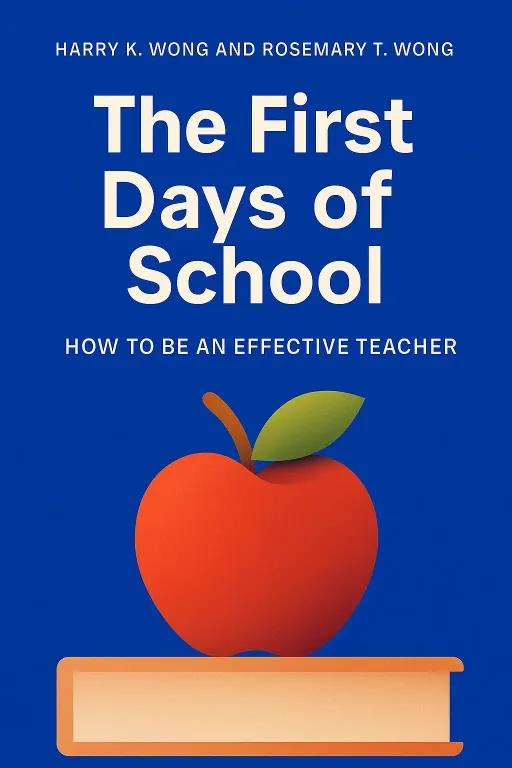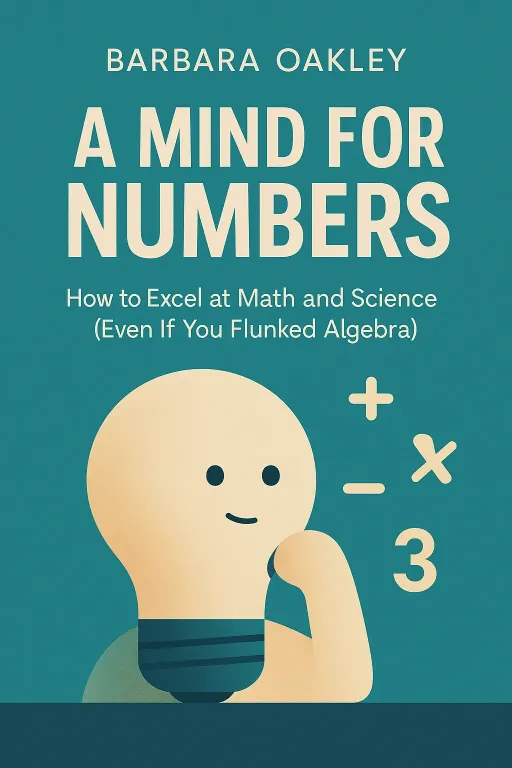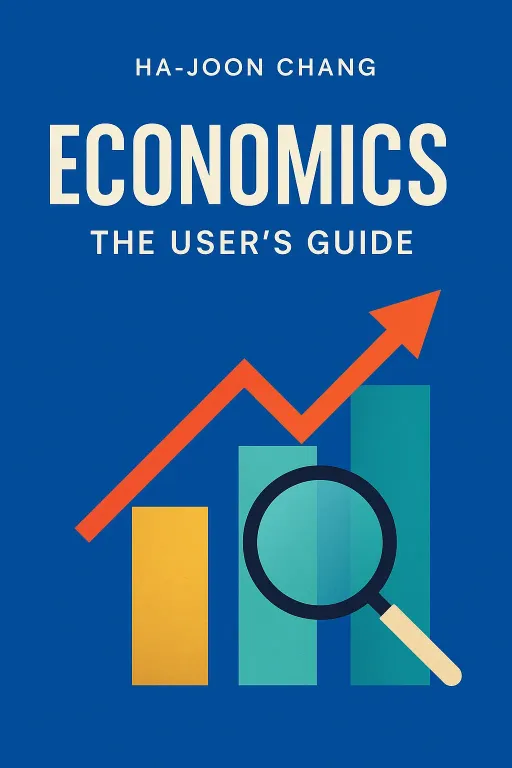
The Myth of the Free Market
14 minThe User's Guide
Golden Hook & Introduction
SECTION
Laura: Most of us think of economics as a science, full of hard numbers and objective truths. But what if the most influential economists are just... pretending? Sophia: Pretending? What do you mean, like they're faking their math? That sounds like a conspiracy theory, Laura. Laura: Not faking the math, but faking the certainty. What if it's all a political story, and we've just been handed the script without realizing we're the actors? Sophia: Okay, now you have my attention. That’s a pretty bold claim. Where is this coming from? Laura: It's the explosive idea at the heart of Economics: The User's Guide by Ha-Joon Chang. Sophia: Ah, Ha-Joon Chang. He's a pretty big name, right? Teaches at Cambridge, known for being a bit of a renegade in the economics world. His work is often highly rated but also gets some pretty polarizing reviews for being so critical of the mainstream. Laura: Exactly. He's an institutional economist, and he wrote this book in 2014, in the long shadow of the 2008 financial crisis. It was a time when everyone suddenly realized the so-called 'experts' and their flawless models might not have all the answers. The book was widely acclaimed, even nominated for major awards, because it basically gives people the tools to see through the script. Sophia: A user's guide to see the Matrix of economics. I like it. So where do we start? How do you even begin to argue that economics isn't a science? Laura: Well, Chang starts with a stunning confession from a top economist. Gregory Mankiw, a Harvard professor who writes one of the most popular economics textbooks in the world, openly admitted, and I'm quoting from the book here, "When I teach undergraduates, I very consciously describe the field of economics as a science, so no student would start the course thinking he was embarking on some squishy academic endeavor." Sophia: Whoa. Hold on. He admits he consciously frames it as a science to give it more authority? That feels... dishonest. Laura: It’s a powerful move, isn't it? It immediately tells you that the way economics is presented is a choice. And that choice has enormous consequences.
Economics Isn't a Science, It's a Political Fight
SECTION
Sophia: Okay, so if it's not a science like physics or chemistry, what is it? Laura: Chang argues it’s a political argument. Unlike physics, where we all agree on the law of gravity, economics has at least nine major schools of thought—Neoclassical, Keynesian, Marxist, Austrian, and so on—and they all fundamentally disagree on how the world works. Sophia: Nine? I think I only ever learned about one, the one with supply and demand curves. Laura: That's the Neoclassical school, and it's become so dominant that it's often presented as the only economics. But Chang says that’s like giving a carpenter only a hammer. A hammer is a great tool, but if you try to use it to saw a piece of wood, you'll make a mess. Sophia: And if you see every problem as a nail... Laura: You'll miss the bigger picture. Each school of thought is a different tool. The Keynesians have a great toolkit for understanding unemployment. The Schumpeterian school is brilliant for analyzing technological innovation. The Behaviouralists help us understand why people make irrational choices. Relying on just one is intellectual blindness. Sophia: That makes a lot of sense. But what about the numbers? GDP, inflation rates, unemployment figures... those feel objective. They're not just opinions, are they? Laura: That's what we're led to believe. But Chang tells this fantastic, dark joke about an interview for the chief statistician of the Soviet Union's central planning agency. The board asks the first candidate, "What is two plus two?" He says, "Five!" trying to show his revolutionary zeal. He's rejected for being inaccurate. The second candidate says, "Three!" He's arrested for counter-revolutionary pessimism. The third, a nerdy academic, says, "It's four." He's lectured for his blind faith in bourgeois logic. Sophia: Oh boy, I can see where this is going. What did the fourth guy say? Laura: The fourth candidate leans in and says, "How many do you want it to be?" He got the job. Sophia: Wow. That is chilling. And it perfectly makes the point. The numbers themselves can be political. Laura: Exactly. Take GDP. We treat it as the ultimate measure of a country's success. But the decision to exclude unpaid household work—mostly done by women—from GDP calculations is a political and moral choice. It systematically undervalues women's contributions to the economy. The numbers aren't neutral; they are born from a theory, from a particular way of seeing the world. Sophia: So the first step in this 'user's guide' is to stop trusting the experts blindly and start asking, "What's your theory? What are your values? And who benefits from you telling this particular story?" Laura: Precisely. You have to ask, "Cui bono?" Who benefits? Sophia: Okay, but let's be practical. Most of us, when we think of economics, think of the market. We're told that the free market is the most efficient, most natural way to organize society. Isn't that the default best option, even if other theories have some interesting points? Laura: That is the most powerful economic story ever told. And according to Chang, if you look at actual history, it's a complete and utter myth.
The Myth of the Free Market: How Rich Countries *Really* Got Rich
SECTION
Sophia: A myth? That's a huge claim. The United States, Great Britain... they're the poster children for free-market capitalism. Laura: They are today. But Chang asks a simple question: how did they get there? The story we're told is that Britain, in the 18th and 19th centuries, embraced free trade and out-competed everyone. The reality is much darker. Sophia: Darker how? Laura: Let's take the story of cotton. In the early 1700s, India was the world's leading producer of cotton textiles. They were higher quality and often cheaper than what Britain could produce. British wool producers were terrified. So what did the British government do? Sophia: Let me guess... they didn't just compete harder. Laura: They didn't. In 1700, they banned the import of Indian cotton textiles to protect their own fledgling industry. It was pure protectionism. They nurtured their own textile industry behind this wall. Then, once their industry was mechanized and powerful, they did the reverse. They forced free trade on their colonies, especially India. Machine-made British textiles flooded the Indian market, and as a colony, India wasn't allowed to use tariffs to protect its own weavers. Sophia: So they protected their own industry when it was weak, and then forced free trade on others once they were strong enough to win. Laura: It was a brutal and systematic destruction of a rival industry. Lord Bentinck, the British Governor-General of India, wrote in 1835 a line that should send a shiver down your spine. He said, "the bones of the cotton weavers are bleaching the plains of India." Sophia: That's just heartbreaking. That's not an abstract economic policy; it's the destruction of millions of people's livelihoods. And we're taught to admire this as the birth of industrial capitalism. Laura: And Britain isn't the exception; it's the rule. Let's look at the US. The founding fathers were split. Thomas Jefferson wanted a nation of small farmers. But Alexander Hamilton, the first Treasury Secretary, argued that if the US wanted to be a real power, it had to industrialize. But how could their tiny, new companies compete with the might of the British Empire? Sophia: They couldn't. British goods were better and cheaper. Laura: Exactly. So Hamilton developed what's now called the "infant industry argument." He said the government needed to protect and nurture its 'industries in their infancy' with tariffs, subsidies, and public investment until they were strong enough to compete globally. Sophia: It’s like giving a young plant a greenhouse before you expose it to the harsh weather. You protect it until it's strong enough to survive on its own. Laura: A perfect analogy. And that's exactly what the US did. For most of the 19th century and into the 20th, the US was one of the most protectionist countries on Earth. It had the highest average industrial tariffs in the world. It was behind that wall of protection that its manufacturing might was built. Sophia: Hold on. This is blowing my mind. So Britain and the US basically cheated? They used the greenhouse of protectionism to get rich and then, once their plants were giant redwoods, they started preaching to everyone else that greenhouses are bad and everyone should just expose their tiny seedlings to the open storm of free trade? Laura: You've just perfectly summarized it. In fact, that's the title of another one of Chang's famous books: Kicking Away the Ladder. It’s a powerful metaphor for how rich countries often give development advice to poor countries that is the exact opposite of what they themselves did to become rich. Sophia: This changes everything. The whole story of free trade as this pure, benevolent force for good is... well, it's a story told by the winners. But if the free market isn't the whole picture, and these grand national policies are so important, what does that say about the individual? Economics textbooks always start with the rational, self-interested individual. Is that a myth too? Laura: That's the next layer of the onion to peel back. If the free market isn't the all-powerful force we think it is, then maybe the 'rational individual' isn't the main character of the economic story either.
The Real Actors and the Neglected World of Production
SECTION
Sophia: Okay, so if the economy isn't just a bunch of individuals making rational choices in a free market, then who, or what, is actually running the show? Laura: Organizations. Huge, powerful organizations. Chang points to research by the Nobel laureate Herbert Simon, who estimated that only about 20% of economic activity in a country like the US actually happens in the market. The other 80% happens within organizations—like corporations and governments—through plans, commands, and internal directives. Sophia: Only 20%? That's shockingly low. So most of the economy is more like a planned economy than a free market? Laura: In a way, yes. A giant corporation like General Motors or Google is a centrally planned economy. Decisions aren't made by a million little market transactions inside the company; they're made by managers who direct resources and people. We focus so much on the individual consumer, but we forget that the world of production—the messy, complicated, human process of actually making things—is where the real action is. Sophia: And that world of production is often completely ignored in the clean, simple models. Laura: It's treated like a "black box." The models say you put in capital and labor, and out comes a product. But they don't look inside the box. Chang uses a wonderful, and poignant, example to illustrate this: the story of Mr. Bucket from Roald Dahl's Charlie and the Chocolate Factory. Sophia: Mr. Bucket? Charlie's dad? What does he have to do with economics? Laura: Remember his job? He worked in a toothpaste factory, and his only task was to screw the little caps onto the tubes of toothpaste. It was a repetitive, mind-numbing job, but it was the only thing standing between his family and starvation. Sophia: Right. And then one day he comes home and... he's been replaced. Laura: He's been replaced by a machine that can screw on the caps ten times faster. From a purely economic model's perspective, this is a fantastic outcome! It's a productivity gain. The company is more efficient. The price of toothpaste might even go down by a fraction of a cent. It's a win. Sophia: But it's not a win for Mr. Bucket. For him, it's a catastrophe. His skills are now worthless. His life is upended. The economic model doesn't have a column to account for his dignity, his despair, or his family's hunger. Laura: Exactly. And that story is so powerful because it's happening all around us, all the time. We talk about 'efficiency gains' from automation and AI, or the benefits of 'creative destruction' in capitalism. But what we're often really talking about is millions of Mr. Buckets losing their jobs, their purpose, and their security. The simple model of the rational individual making choices completely misses the human cost embedded in the world of production. Sophia: It makes you realize that the individualist vision of the economy—that we're all just free agents making choices—is a very convenient story for those who don't want to take responsibility for the consequences of the system. It's easier to say "Mr. Bucket should have retrained" than to ask if the system itself is just. Laura: And that's the core of Chang's argument. The economy isn't a force of nature. It's a human-made system, built on a series of political and moral choices. And if we made it, we can change it.
Synthesis & Takeaways
SECTION
Sophia: So, if I'm putting all this together, it feels like the book is a three-step journey to becoming a more critical economic citizen. Laura: I love that framing. What are the steps? Sophia: First, you have to break the spell. Realize that economics isn't a science; it's a collection of political stories, and the dominant story serves someone's interests. You have to learn to ask, "Who benefits?" Laura: Step one: see the Matrix. Got it. Sophia: Second, you have to learn the real history. The story that today's rich countries got there through free trade is a fairy tale they tell to everyone else. The reality is a much more complicated, and often brutal, story of protection, strategy, and state power. They kicked away the ladder. Laura: Step two: learn the secret origin stories. Perfect. Sophia: And third, you have to look at the real world, not the textbook model. The economy isn't driven by millions of isolated, rational individuals. It's shaped by powerful organizations and the messy, human, often painful world of production, where people like Mr. Bucket live out the consequences of decisions made far away. Laura: See the Matrix, learn the real history, and focus on the real world. That's a brilliant summary. It’s not about becoming a professional economist. It’s about reclaiming our right to have an opinion on the economy. Sophia: Exactly. The real takeaway for me isn't a specific policy, but a change in mindset. It's about developing the confidence to question the 'experts' and to see the economic headlines not as objective facts, but as one chapter in a story that is still being written. And we all have a role to play in writing the next chapter. Laura: And that's an incredibly empowering thought. Chang is ultimately an optimist. He believes we can build a better economy—one that's more stable, more equitable, and more humane. But it starts with us, the users, deciding to read the manual critically. Sophia: It makes me wonder... what's one economic 'truth' that people listening right now have always felt was a bit off, something that just didn't match their lived experience? Laura: That’s a great question. We'd love to hear your thoughts. Find us on our social channels and tell us about an economic idea you've always questioned. Let's start a conversation. Laura: This is Aibrary, signing off.
